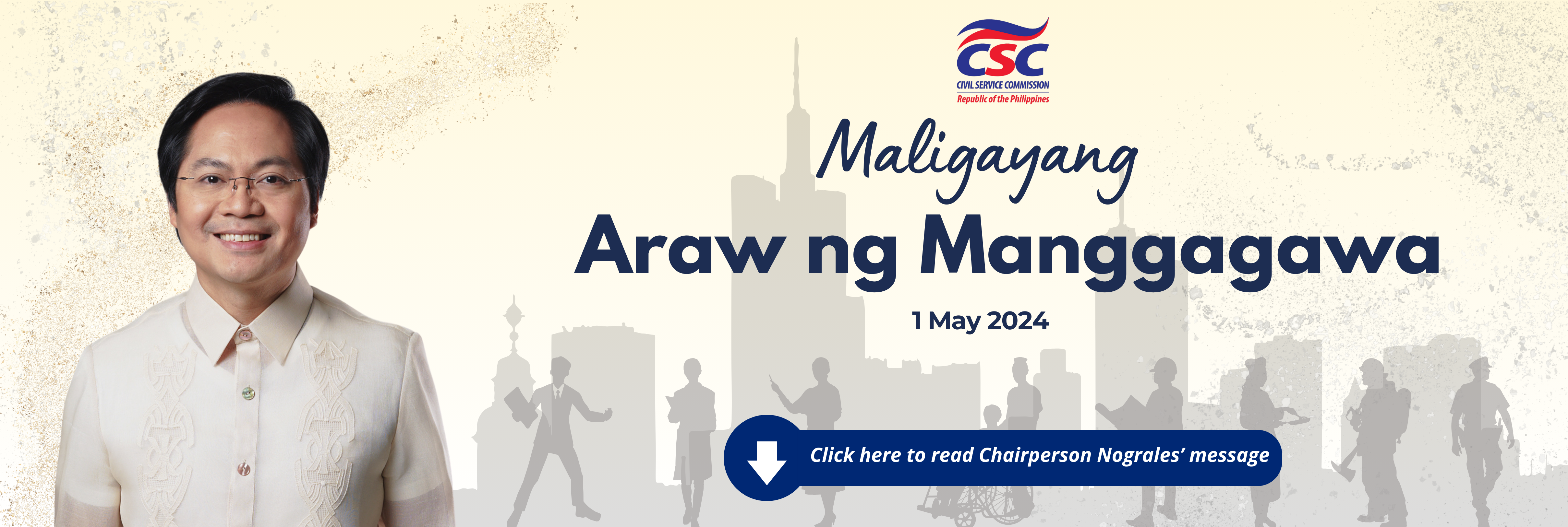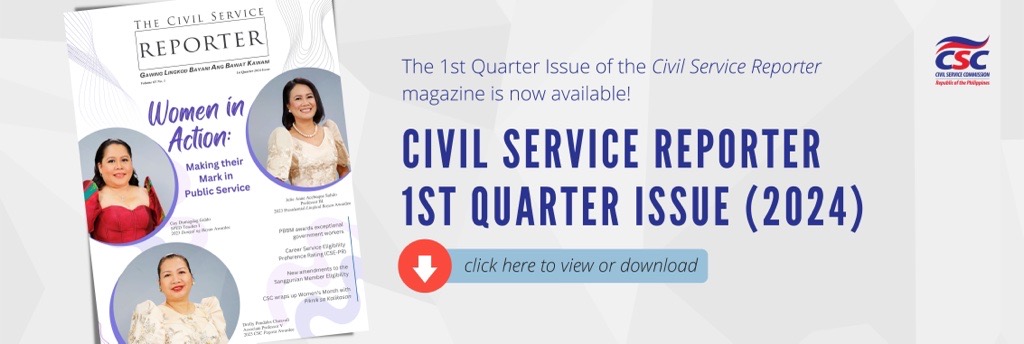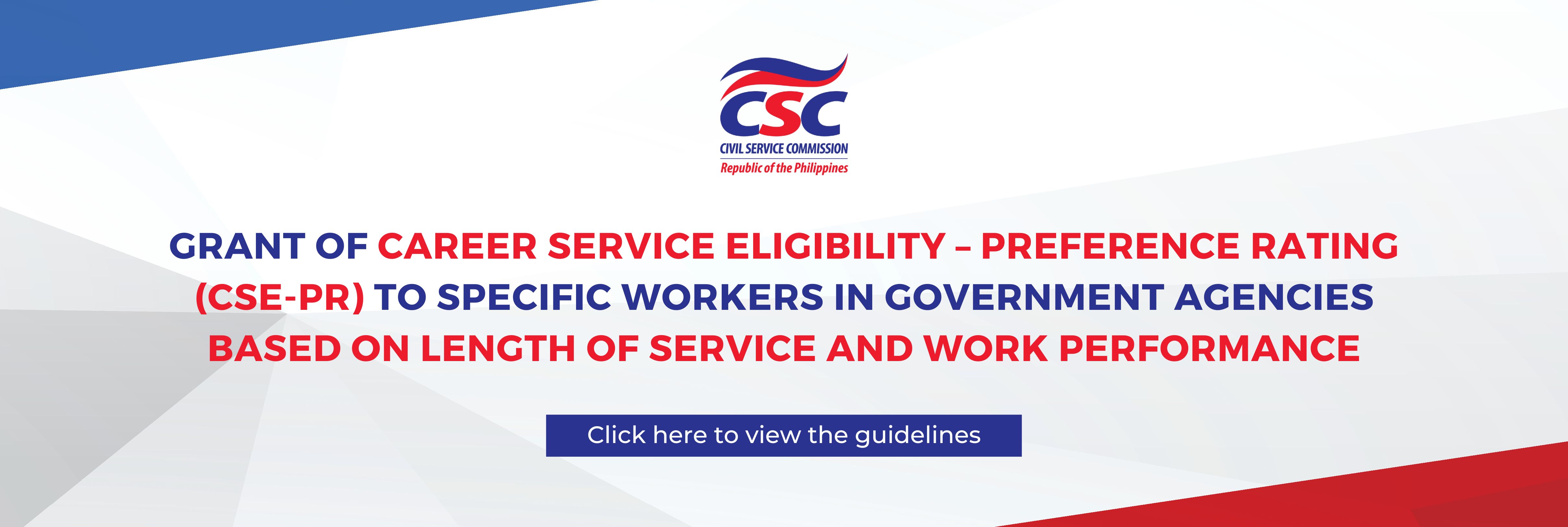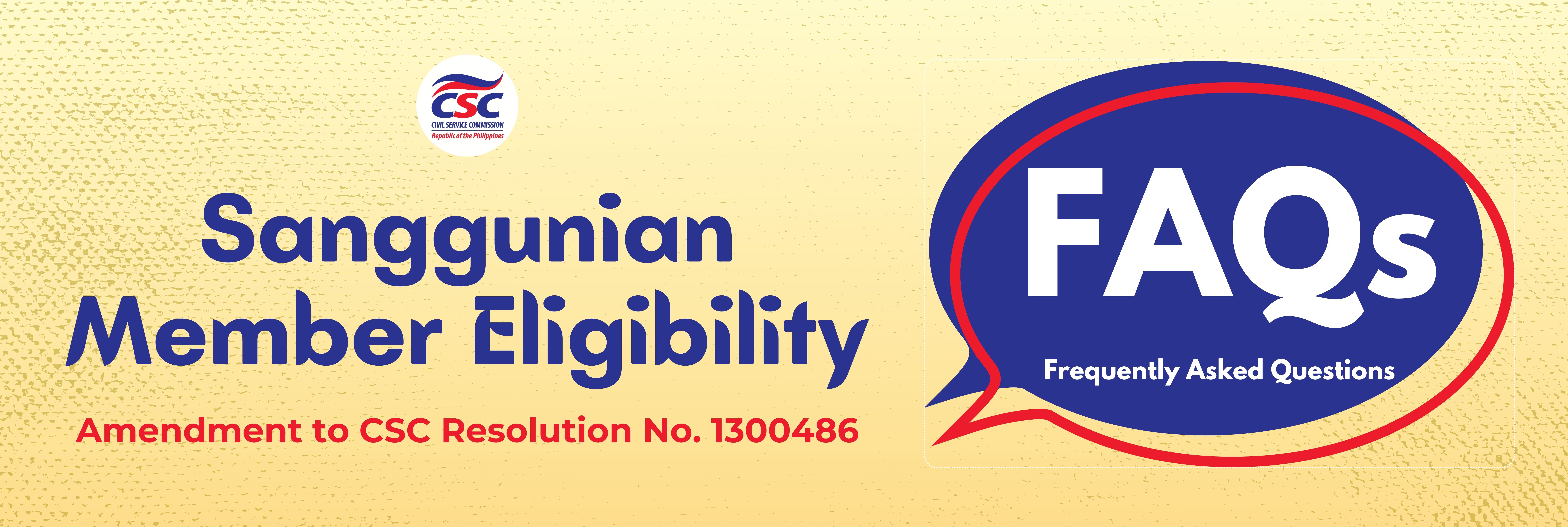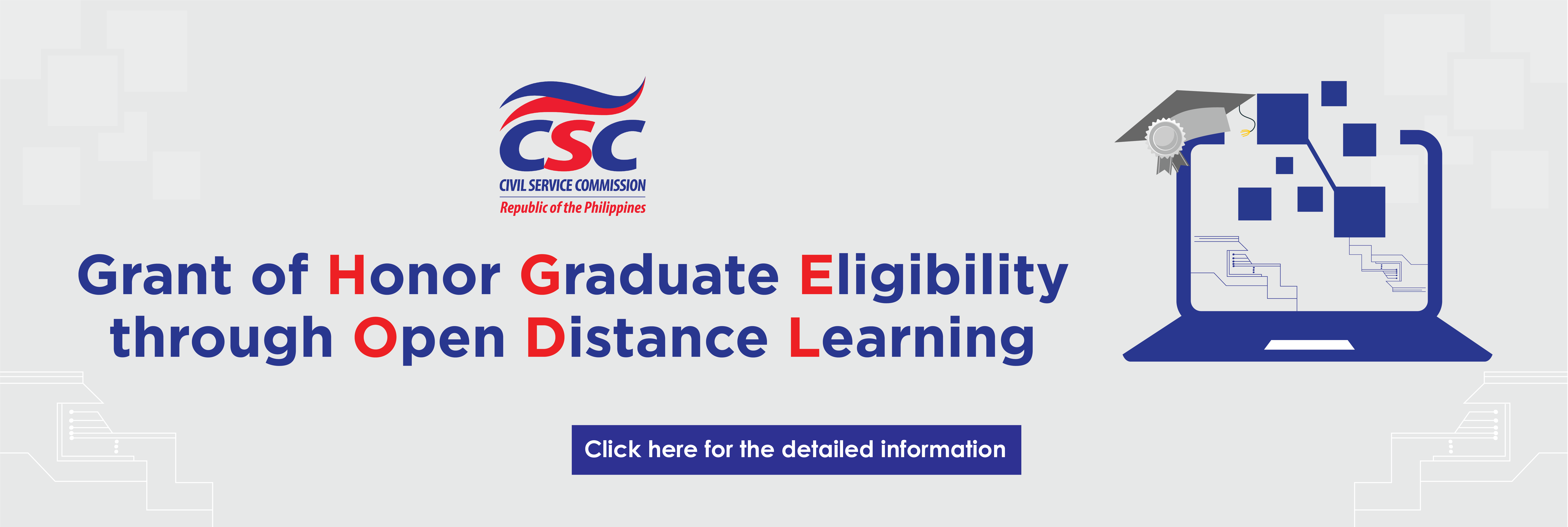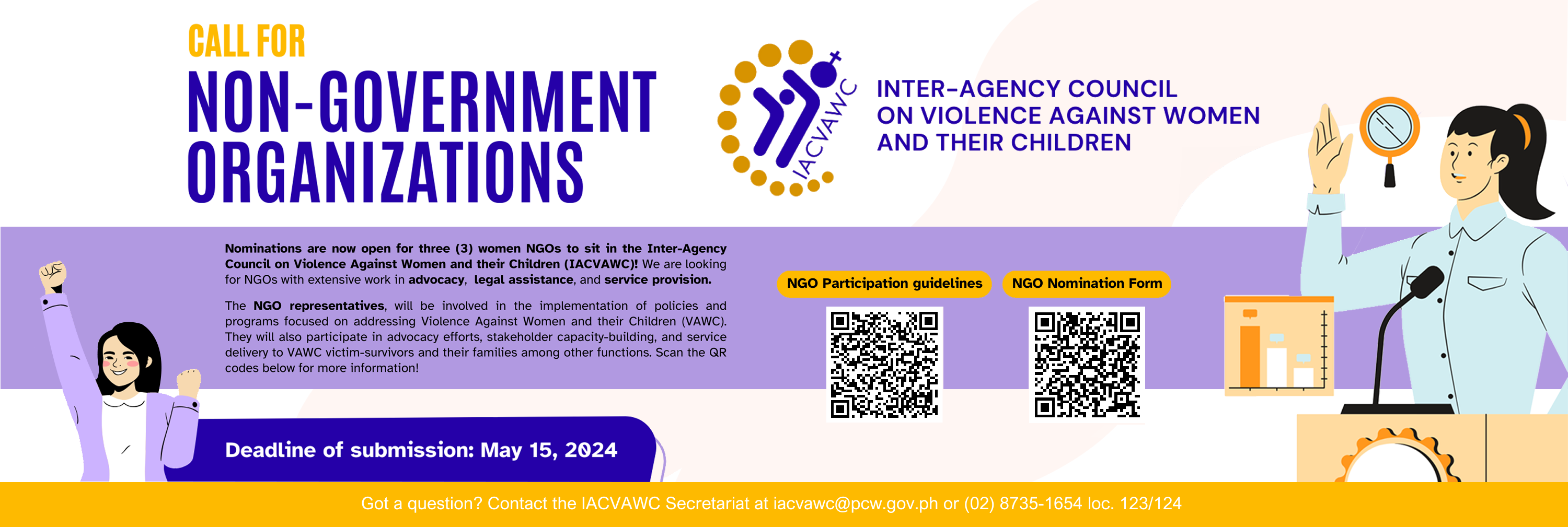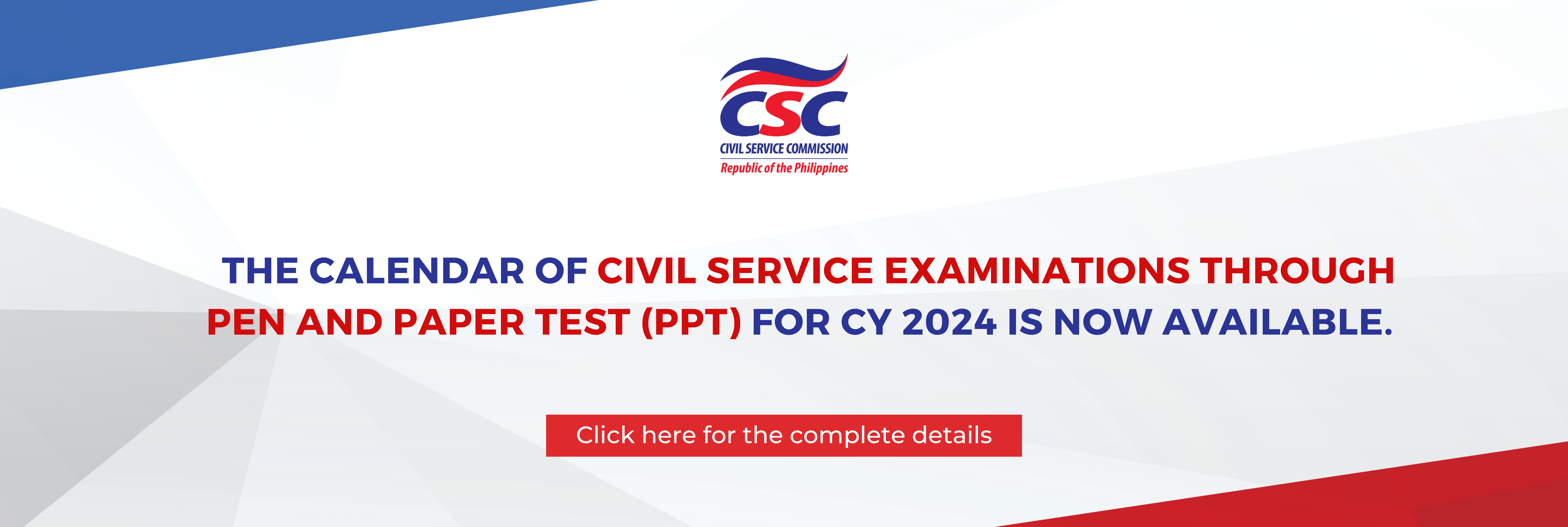- Details
The Civil Service Commission (CSC) reminds government agencies to grant claims for benefits under Republic Act No. 11210, also known as the 105-Day Expanded Maternity Leave Law, to women who gave live childbirth, or sufferred miscarriage or emergency termination of pregnancy on 11 March 2019 and thereafter.
R.A. 11210 took effect on 11 March 2019 and thus applies to instances of live childbirth, miscarriage, or emergency termination of pregnancy that occurred starting from said date. The CSC, Department of Labor and Employment, and Social Security System recently issued a joint clarificatory statement explaining that the date of effectivity of the law is 15 days after the publication of R.A. 11210 in a newspaper of general circulation. The law was published on 23 February 2019.
The statement corrects the misconception that the effectivity date of the law is based on the publication date of the Implementing Rules and Regulations (IRR). The IRR was issued on 1 May 2019 and published in a newspaper of general circulation on 3 May 2019.
Read more: Gov’t issues clarification on 105-day maternity leave
- Details
As the Civil Service Commission (CSC) reiterates its call for government agencies and their employees to take necessary precautionary measures to prevent the spread of the coronavirus disease-2019 or COVID-19 in the workplace, it released interim guidelines on the use of leave credits for absences due to self-quarantine and/or treatment relative to COVID-19.
CSC Memorandum Circular No. 5, series of 2020 issued yesterday, provides the guidelines for the availment of leave for public sector employees as well as ensure that precautionary measures are employed in government offices to avoid the spread of the virus in the workplace.
Public sector officials and employees whether permanent, temporary, provisional, substitute, coterminous, casual, contractual or fixed term who feel sick with COVID-19 like symptoms or have been exposed to persons infected with the virus are directed to immediately inform their supervisor; voluntarily seek immediate medical attention and/or go on self-quarantine, upon the advice and certification of a licensed physician.
- Details
Government agencies and their employees should take precautionary measures to further prevent the spread of COVID-19 in the workplace.
The Civil Service Commission said agencies must establish prevention and control measures to protect their employees from the risk of infection. Such measures, according to the Department of Health*, include the following:
- Regular and thorough handwashing and use of alcohol-based hand sanitizers; and
- Use of face mask for the following people: a) persons caring for the sick; b) healthcare workers attending to patients with respiratory infections/symptoms; c) persons with respiratory infections/symptoms.
Preventive measures also include the management of symptomatics. Employees suspected of having COVID-19 must be provided with a face mask to prevent the risk of spreading the infection; be immediately isolated in a separate well-ventilated room, away from other workers; and be referred to a healthcare provider or hospital for evaluation. The employee’s work area must also be decontaminated.
Read more: CSC calls for precautionary measures in gov’t workplaces
- Details
Government employees who have left the service may request to claim their terminal leave benefit any time, the Civil Service Commission (CSC) announced.
In CSC Resolution No. 1901392, the Commission amended Section 38 of the Omnibus Rules on Leave providing a prescriptive period of 10 years within which to file a request or claim for payment of terminal leave benefit.
Section 38 now reads: “Request for payment of terminal leave benefits may be brought any time after the official/employee severed his/her connection with his/her employer.”
Read more: Prescriptive period to claim terminal leave benefit scrapped
- Details
Select barangay officials, health workers, and nutrition scholars may be granted career service eligibilities appropriate for first level positions in the government, the Civil Service Commission (CSC) said.
Aside from acquiring eligibility from passing the Career Service Examination, the CSC grants special eligibilities to qualified individuals including the barangay official eligibility, barangay health worker eligibility, and barangay nutrition scholar eligibility.
Barangay Official Eligibility (BOE)
Elective and appointive barangay officials who have completed their term of office on or after 1 August 2012 are encouraged to apply for the Barangay Official Eligibility (BOE).
Read more: Select barangay workers may apply for CS eligibility

